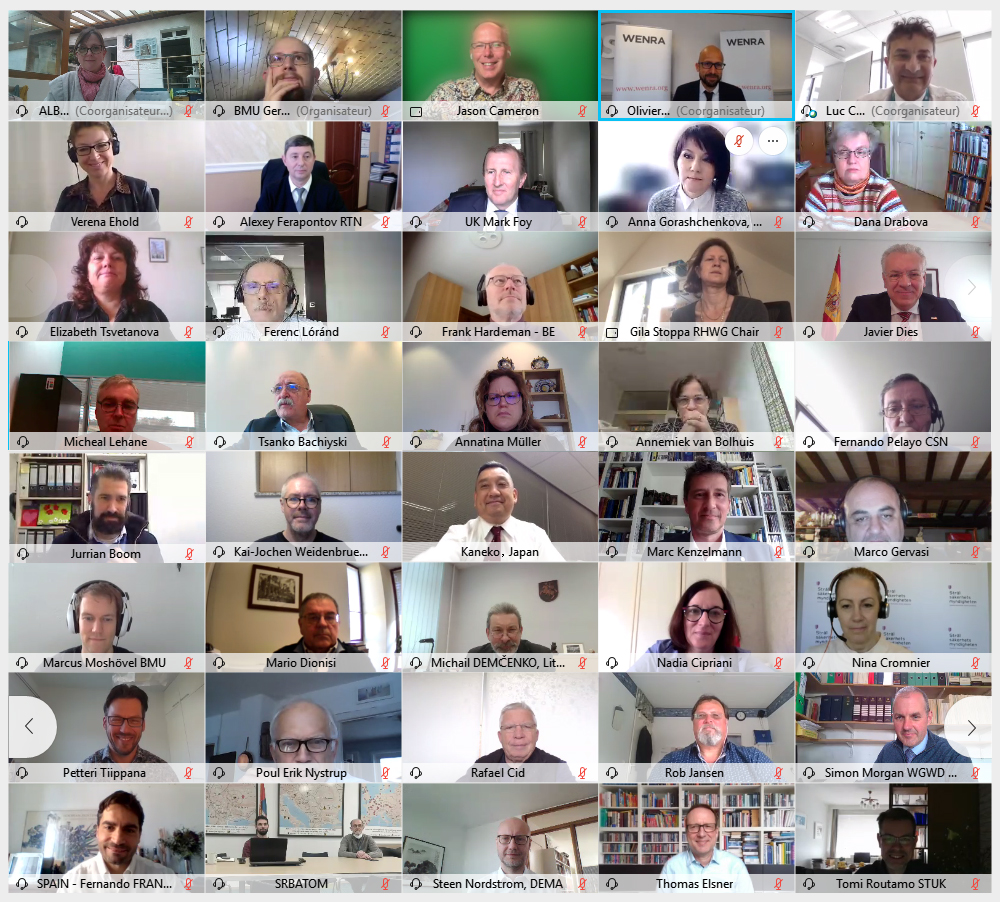
At this meeting, the WENRA’s Chair, O. Gupta, reported on the Association’s activities since the last meeting in November 2020. He reported on meetings he had with WENRA’s key stakeholders, such as ENSREG, the European Nuclear Installations Safety Standards Initiative (ENISS) and the Heads of the European Radiological Protection Competent Authorities (HERCA). Additionally, WENRA’s Chair met with representatives of the US NRC with whom he had a worthwhile discussion about WENRA’s activities. He also reported about his participation in two events organized by the Nuclear Energy Agency of the OECD.
2023 Topical Peer Review
At its November 2020 and March 2021 plenary meetings, ENSREG endorsed the WENRA’s proposals regarding respectively the topic (fire protection) and the scope (all installations falling under the scope of the Nuclear Safety Directive) of the forthcoming Topical Peer Review (TPR) to be conducted in 2023.
As a follow-up, WENRA decided to establish an ad hoc group specifically in charge of drafting the Technical Specifications (TS) of the TPR, and gave indications to the group on how to proceed. WENRA underlined the importance of focusing the TS on aspects that will be beneficial in terms of safety for participating countries.
Outlines from WENRA’s working groups
Existing power reactors
WENRA approved the publication of the Reactor Harmonization Working Group’s (RHWG) report on the “Status of the Implementation of the 2014 SRLs in national regulatory frameworks as of 1 January 2021”.
New power reactors
The work conducted by the RHWG in 2019-2020 regarding the revision of the safety objectives for new reactors and their applicability to Small Modular Reactors (SMRs) was discussed. The corresponding reports will be published.
The RHWG was asked to identify the activities related to SMRs that would be valuable to carry on in the frame of WENRA.
Research reactors
To follow-up on the November 2020 WENRA decision that the Working Group on Research Reactors (WGRR) will continue its activity, the WGRR presented its programme of work for the next 5 years.
WENRA endorsed this 5-year plan, noting its 3 priorities:
- the benchmarking of the implementation in the national regulations of the Safety Reference Levels (SRLs) for Research Reactors, approved in November 2020,
- the joint development, with the RHWG and the WGWD, of “generic” SRLs applicable to all types of installations, that would replace some of the current SRLs,
- and the TPR-related activities.
Waste and decommissioning
It was confirmed that the Working Group on Waste and Decommissioning (WGWD) would participate in the November 2021 IAEA Conference on Radioactive Waste Management, for which an abstract on "WENRA’s Safety Reference Levels contribute to continuous improvements and harmonisation of regulatory approaches for radioactive waste management in many European countries” has been submitted.
The WDWG will draft a leaflet to present the activity of the group in the field of waste and decommissioning which will be broadly distributed to national and international stakeholders to enhance WENRA’s visibility in this area.
Membership
As a feedback of the special meeting held in margins of the November 2020 WENRA plenary meeting,
observers and associated members acknowledged the value of being involved in WENRA activities, and
expressed their satisfaction with the current rules of operation.
It was agreed that increasing significantly the number of participants to the plenary and working groups meetings would create difficulties. To allow interested regulators who would not have access to the observer status to get information on WENRA activities, an option to be explored could be to set up dedicated meetings. Such meetings would provide an opportunity for WENRA to share information on WENRA products and programme of work, discuss respective expectations and identify potential ad hoc initiatives to further cooperate.